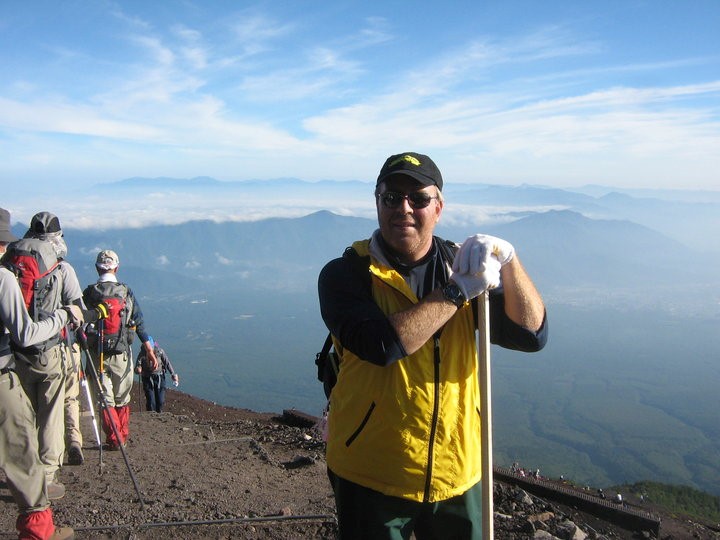Sam Glass, a culinary arts instructor from Thornhill, Ont., has had two doses of the AstraZeneca COVID-19 vaccine, and says he was happy to get them.

“No regrets,” he told Global News. “I’m happy that I protected myself. I I’m happy that I’m protecting those around me who might not have been vaccinated, you know, doing the right thing.”
That doesn’t mean he’s happy about the latest advice from the National Advisory Committee on Immunization (NACI) – that people who received a first dose of AstraZeneca should receive a mRNA vaccine like Pfizer or Moderna for their second dose as a “preferred” choice if they can.
“The frustration right now is the mixed messages that we’re getting from NACI. One day it’s good, one day it’s bad,” Glass said.
Others echoed his concerns.
“I’m frustrated because now, after being told for months that the best vaccine is the first one that’s in your arm, I’m being told I may have made a mistake,” said AstraZeneca recipient Gwenny Farrell, from White Rock, B.C.

The original message was that Canadians should take the first vaccine that was offered — and for many people, this was AstraZeneca. Then, amid concerns about a rare blood clotting disorder associated with the vaccine, many provinces gradually phased out offering AstraZeneca as a first dose, then some provinces offered the option to take another vaccine for the second dose.
And Thursday, NACI said that AstraZeneca should no longer be the preferred choice for either first or second doses, due to the “better immune response” generated by mixing and matching vaccines.
That doesn’t mean that getting two doses of AstraZeneca was bad though, officials were quick to say.

Get weekly health news
“I wish to emphasize that people who received two doses of AstraZeneca/COVISHIELD vaccine should rest assured that the vaccine they received provides good protection against infection, and very good protection against severe disease and hospitalization,” said Canada’s chief public health officer, Dr. Theresa Tam, at a press conference Thursday.
More than 2.9 million doses of AstraZeneca have been distributed to Canadian provinces as of June 16, according to the federal government. Some provinces, including Ontario and B.C., continue to offer AstraZeneca as a second dose, despite the updated NACI recommendation, and it’s not required for provinces to go along with the NACI advice.
Scientifically, NACI’s advice makes sense, said Dr. Isaac Bogoch, an infectious diseases specialist with Toronto General Hospital.
“They say there is a risk of this blood clotting syndrome. It’s rare, but it’s there with AstraZeneca and it’s not there with the mRNA vaccines,” he said.
“The second reason is with the data emerging from some European countries like Germany, Spain and in the U.K., we’re seeing that if you mix and match you actually mount a more significant or more robust immune response,” he said.

Given that Canada is also getting a massive supply of Moderna and Pfizer vaccines over the next few months, NACI’s advice is understandable, he said.
Glass is concerned about whether his AstraZeneca vaccines will be accepted for international travel, or for entrance into events – as a widely reported Broadway show seems to be barring AstraZeneca recipients from entering.
He’s not sure about the requirements for any of this, and would like clearer guidance, he said.
“There’s just no clear direction, no clear information. And I think, you know, that’s the frustration. A lot of people just need to hear something definitive,” he said.

Canada will be discussing details regarding international travel and vaccines with other countries “in the coming weeks,” said Prime Minister Justin Trudeau at a press conference Friday.
And while the scientific guidance on AstraZeneca has changed, “The one thing that has not changed is that all the vaccines approved in Canada are safe and effective against COVID-19,” he said.
Trudeau, who received AstraZeneca himself as a first dose, said he is looking forward to his second dose.
“I will take whichever dose is offered to me,” he said. “I will do what all Canadians should do, which is follow the best advice of the experts around them, including NACI and their family doctors. And I will be reassured, as all Canadians should be, that getting that second dose is the best way through this pandemic, not just for you, but for the people you love.”
Getting your second dose, whatever it is, is “extremely important,” Bogoch said. “At the end of the day, you’ve got to get your two vaccines. You’ve got to,” he said.
“I think there’s a lot of right paths forward, but there’s a few wrong paths forward and a wrong path forward is just getting a single dose of AstraZeneca and then not getting a second vaccine.”
The AstraZeneca vaccine is not a “second-class” vaccine in terms of effectiveness and people who got two doses of it shouldn’t feel “shortchanged,” Bogoch said.
But without clear guidance on travel, events and more, Glass is wondering if that’s what happened. “It’s the frustration of not knowing what the future holds. It’s the frustration of the messaging,” he said.
“Am I a second-class vaccinated person by having two doses of AstraZeneca? I don’t know.”
-with files from Global News’ Mike Le Couteur, Shallima Maharaj and David Lao and the Canadian Press





Comments
Want to discuss? Please read our Commenting Policy first.